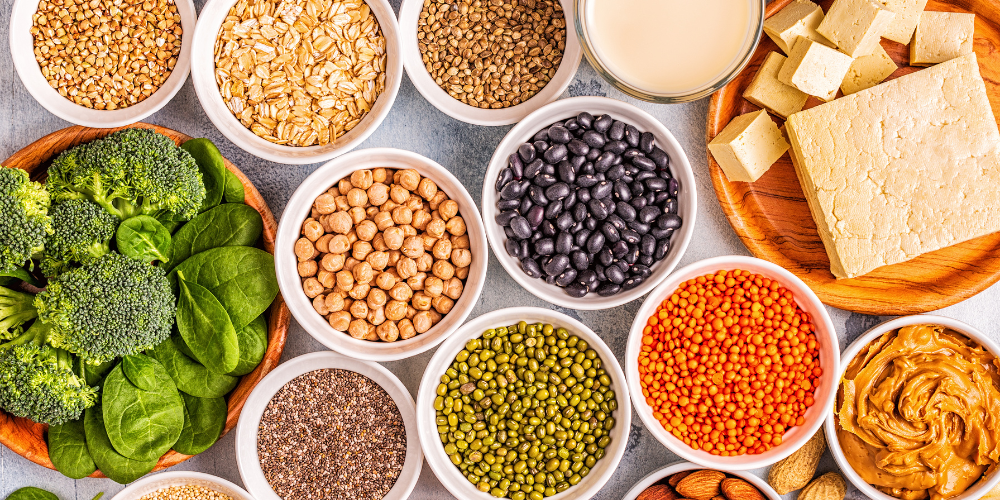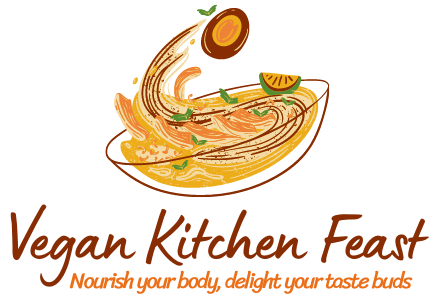
If you’re embracing a vegan or vegetarian lifestyle, you’re going to want to know all about the best sources of plant-based protein. Protein is the building block of life, necessary for everything from muscle repair to enzyme production. And guess what? There’s a rich variety of protein-packed plants waiting to take center stage in your meals.
This isn’t just about tofu and protein shakes; it’s also about discovering a whole world of flavors and nutrients that plants can offer. We’re going to delve into the diverse array of proteins that are naturally found in the plant kingdom. You’re going to find out about everything from lentils to quinoa, and just how these foods can contribute to a healthy, balanced vegan diet.
But first, let’s bust a common myth: that plant-based diets are inherently deficient in protein. The truth is, many plant sources provide ample protein to meet and even exceed daily requirements. It’s all about knowing where to look and how to combine foods to get a complete amino acid profile.
In the next section, ‘The Mighty Legume: A Vegan’s Best Friend,’ you’ll see why beans, lentils, chickpeas, and their leguminous cousins are a cornerstone for vegan protein intake. They’re not just for soups; they can be transformed into a variety of dishes from burgers to salads, making sure you get your protein fix deliciously. So, choose something that resonates with you and let’s get those plant proteins onto your plate!
The Mighty Legume: A Vegan’s Best Friend
If you’re looking to pack a protein punch in your vegan meals, look no further than legumes. These little nutritional powerhouses are not just rich in protein; they’re also affordable and versatile. Legumes, which include beans, lentils, chickpeas, and peanuts, offer roughly 15 grams of protein per cooked cup, making them an essential component of a plant-based diet.
But legumes aren’t just about protein. They bring a heap of other nutritional benefits to the table. They’re excellent sources of fiber, iron, and B vitamins, which are crucial for energy production and overall health. Plus, they’re low in fat and free of cholesterol, which supports heart health. Given their low glycemic index, legumes can help manage blood sugar levels, which is particularly beneficial for those with diabetes or anyone looking to stabilize their energy throughout the day.
Including legumes in your diet couldn’t be easier. Start with something simple, like adding black beans to your tacos or lentils to your soup. If you’re feeling more adventurous, look up some recipes for homemade hummus or falafel. And don’t forget about peanuts and peanut butter, which can be great for snacking or adding to smoothies for an extra protein boost.
Now, let’s transition from legumes to another fantastic group of plant-based proteins. In the next section, we’re going to talk about seeds and nuts. These small but mighty foods are more than just a quick snack; they’re packed with important nutrients and surprisingly high in protein. Keep reading to uncover how seeds and nuts can fit seamlessly into your vegan lifestyle and provide you with essential protein and more.
Seeds and Nuts: Nutrient-Dense Protein Snacks
Now, if you’re considering how to jazz up your protein intake, don’t overlook seeds and nuts. These tiny nutritional powerhouses pack more than just protein; they’re also loaded with essential vitamins, minerals, and heart-healthy fats. Think of them as your diet’s multitaskers. Chia seeds, hemp seeds, and flaxseeds are among the top contenders, each serving up a hefty dose of protein in addition to omega-3 fatty acids, which are crucial for brain health.
What’s equally important is the balance these foods bring to your plate. Nuts and seeds contain a significant amount of healthy monounsaturated and polyunsaturated fats. These fats are beneficial for managing inflammation and maintaining healthy cell membranes. Most nuts, like almonds, cashews, and pistachios, are robust sources of protein and make for convenient on-the-go snacks or crunchy additions to salads and stir-fries.
Now, to infuse these into your daily routine, consider this: Start your day with a sprinkle of chia seeds in your smoothie, add a scoop of nut butter to your oatmeal, or garnish your lunchtime salad with a hearty helping of sunflower seeds. It’s not just about a sprinkle here and there; get creative with nut-based sauces like a creamy cashew Alfredo or a hearty seed-based veggie burger patty that’s both satisfying and protein-rich.
Bear in mind, though, portion control is key. Seeds and nuts are energy-dense, so I’d say, observe moderation to keep your overall calorie intake in check while you enjoy their protein benefits. And if you’re in a rush, a handful of almonds or a spoonful of pumpkin seeds are simple yet effective ways to boost your protein intake without much fuss.
That’s the beauty of seeds and nuts – they are versatile and varied. But let’s not stop at versatility. Whole grains carry forward the baton in the realm of plant-based proteins. And that’s going to be our next focus, diving into why these fibrous staples are about more than just helping your digestive system.
Whole Grains: More Than Just Fiber
You might think of whole grains as just a great source of fiber, but they’re actually a double threat: they’re also loaded with protein. When you’re on a plant-based diet, turning to whole grains can be a game-changer, not only for digestive health but for ensuring you’re getting enough protein too.
Whole grains like quinoa, buckwheat, and amaranth are often overlooked, but they pack a serious protein punch and can easily be a central part of your meals. I’m talking about turning these grains into hearty breakfast porridges, adding them to soups for a satisfying texture, or even using them as a base for veggie burgers.
Don’t just stick to the usual suspects like rice and wheat. There are a whole host of grains out there waiting to jazz up your meals with their unique flavors and textures. Farro, teff, and kamut are just a few that I’ve experimented with, and let me tell you, the results can be delicious and nutritious.
But it’s not only about diversification for the sake of your taste buds. Whole grains are a smart move for packing in protein throughout your day. Have a bowl of oatmeal in the morning, toss some barley in your salad for lunch, and maybe even some millet or sorghum in your dinner stew. You’re going to find out about just how versatile and beneficial these grains can be.
Choose something that resonates with you, especially when it comes to flavor and ease of preparation. Bonus points because many whole grains can be prepped in bulk at the start of the week and then cleverly included in a variety of dishes, making your meal planning a snap.
Now this is crucial: shifting towards getting your proteins from whole grains sets you up nicely for the next topic. What about those times when whole foods aren’t enough or your busy lifestyle gets in the way? That’s where we bring in the reinforcements: plant-based protein supplements. Let’s talk about why supplementing smartly can ensure you never fall short on your protein intake.
Incorporating Protein Supplements: Wise Moves in Vegan Nutrition
Even with the array of whole foods available, sometimes there’s a gap you need to fill. That’s when plant-based protein supplements can be a real game-changer in a vegan diet. They’re not just for bodybuilders or fitness enthusiasts, but for anyone looking to ensure their protein intake is optimal.
Having protein powders derived from peas, brown rice, or hemp can be handy. Those mornings when you’re in a rush? Shake up some protein powder with almond milk. Need a post-workout boost? A protein smoothie can hit the spot. And on those days where meals just can’t cover it all, add a scoop of protein to your soup or oatmeal.
When choosing a protein supplement, pick one that resonates with you. Look for natural ingredients, minimal additives, and, if possible, third-party testing for quality assurance. This isn’t just about hitting your protein marks; it’s about nourishing your body responsibly.
Your first attempt at using protein supplements doesn’t need to be your last. You can always adjust your approach down the road. You’ve got this, and trust me; incorporating these plant-based proteins can make your vegan lifestyle not only more manageable but also more enjoyable.
